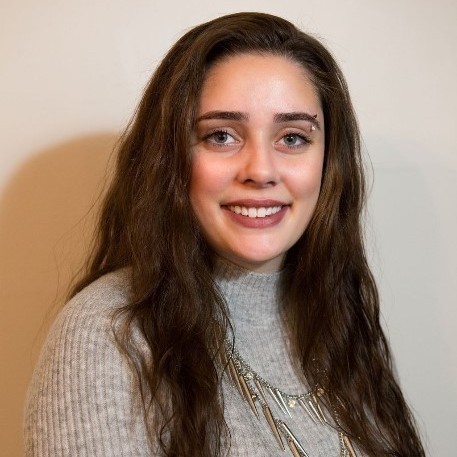
Annika Ness, Fall 2021 Fellow MA in Sustainable Urban Development., College of Liberal Arts and Social Sciences
The focus of my collaboration with the Chicagoland Food Sovereignty Coalition (CFSC) changed multiple times throughout the fellowship. The coalition is a collection of mutual aid groups from throughout Chicago that came together during the winter of 2020 at the outset of the COVID-19 pandemic. Due to incoming grant money for food relief programs, as well as an anonymous donation, the coalition was able to collectively pool money and resources and begin to build what is now a vast network of food rescue. During the Winter Quarter 2020, I was part of a team graduate service learning students that mapped cold storage options for the coalition. Consequently, I was aware of how crucial freezer and fridge space is for food rescue. If meat and fresh produce can be frozen (or at least refrigerated), it drastically increases their shelf-life making it possible to organize, repackage into personal grocery bags, and distribute the food through local mutual aid groups and ultimately through home deliveries or sited distributions. Whatever the coalition cannot get out to their neighbors can be placed into community-based refrigerators or composted.
Originally, the project I embarked on for the coalition was to continue mapping assets to increase their outreach and food rescue opportunities. This included outreach to grocery stores, hospitals, franchisees, and additional storage facilities. Through these efforts, the coalition secured a second warehouse space on the northwest side of Chicago. Contacting individuals who have filled out surveys, other mutual aid networks, pinpointing political and social media messaging, and curating the group's social media image were a large part of my outreach and media responsibilities
In 2022, I created the coalition's website, to support donations, extra volunteer assistance, and people's desire to give to something larger than themselves. The coalitions website, Chicago Food Sovereignty Coalition (chTifoodsovereignty.com, gives a brief description of the group's history and mission, has a list of mutual aid networks for visitors to connect to their neighbors, gives information on how volunteers can get involved with the coalition at large, and features a page where anyone can submit a needs request form or contact the coalition for any other reason. The site made a huge difference in the amount of food rescue volunteers as well as monetary donations. I also created a LinkTree which has all the information a new rescuer might need. It includes an infographic of the group's history and mission, the group's community agreements, a food rescue sign-up form, a map of the cold storage warehouse, some food safety and storage guidelines, community refrigerator locations, and an additional link to the website's FAQ section. Eventually, my project with CFSC reverted to its original mission. During the final quarter of the fellowship, I compiled and mapped a list of assets to increase the food rescue and outreach opportunities for the group. I also worked on a map of coalition operations in relation to farmer's markets in collaboration with students from Northwestern University and the Illinois Institute of Technology. My work also consisted of a comprehensive search of potential new donors, aligned mutual aid networks, and potential future pantry partnerships.
Bridging the gap between academic resources and grassroots, on-the-ground organizing is an important step in achieving equity around the city, and the Steans Center has made that possible for me for the past academic year. Being able to provide the coalition with the resources and skills that a university offers has been invaluable. Whether it is the mapping software, Excel tricks to keep track of the cold storage warehouses' inventory, or simply the time that a graduate student (versus a full-time employee) has to offer, the collaboration has hopefully been worthwhile on both sides. As the coalition's entire mission stands on the idea that our current food system needs to be dismantled and reimagined, their desire to promote equity and sustainability around Chicago is unmatched, as they constantly re-evaluate the systems they are re-creating within the group's operations, and the systems already in place in Chicago's food system. The past year has been life-changing, and I am positive that the coalition's work has had (and will continue to have) that same impact on Chicagoans all over the city.